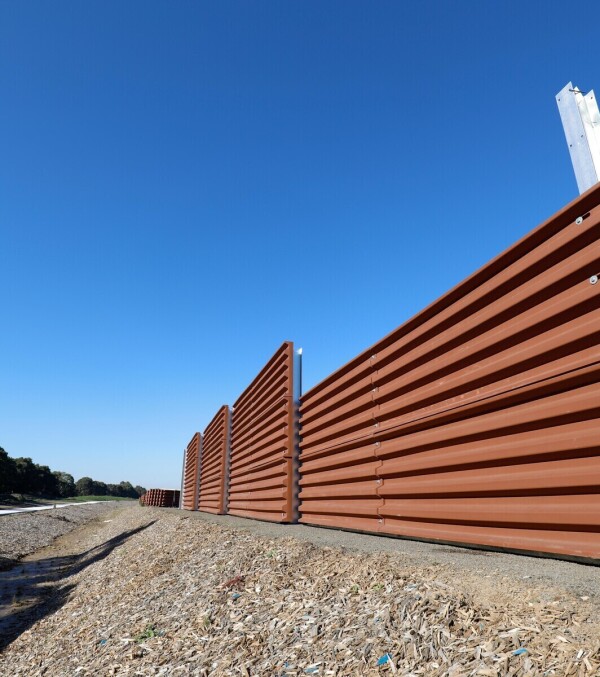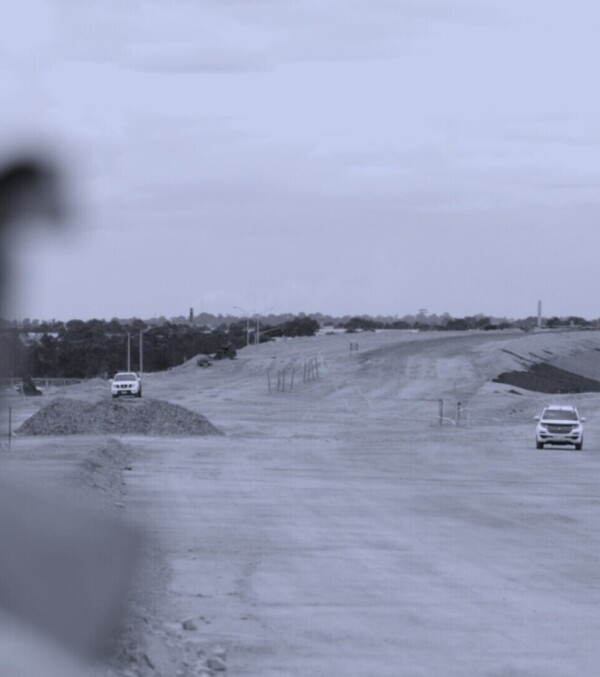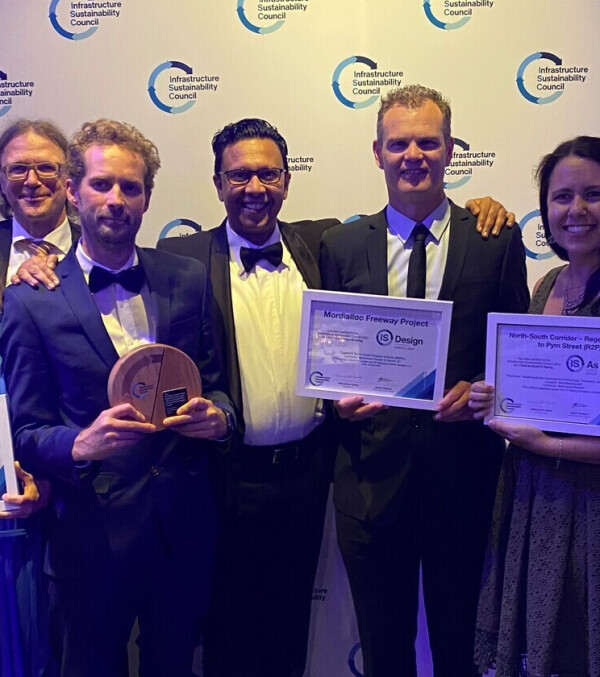|
Customer: Major Road Projects Victoria (MRPV) Contract: Design and Construct Location: Melbourne, Victoria
|
Fast Facts
|
The McConnell Dowell Decmil Joint Venture delivered the Mordialloc Freeway in Melbourne’s south east four weeks ahead of schedule while setting new industry benchmarks in sustainability and workplace mental health management.
The nine kilometre freeway links the Mornington Peninsula Freeway at Springvale Road in Aspendale Gardens to the Dingley Bypass in Dingley Village, creating a continuous freeway from Frankston To Clayton.
With more than 75,000 motorists predicted to use the route daily by 2031, the Freeway will ease congestion and improve safety by removing 13,000 trucks from local roads.
Key features of the project included:
- bridges over Governor Road, Lower Dandenong Road and Centre Dandenong Road, instead of traffic lights
- a bridge over Old Dandenong Road to keep it open for Dingley Village residents
- a twin bridge over sensitive wetlands to ensure rainfall and natural light reaches the vegetation below
- tall fences next to Braeside Park to protect local wildlife
- a wider pedestrian underpass at Braeside Park to improve connectivity
- a new intersection at Lower Dandenong Road so Woodlands Drive can remain open
- a 7.7km shared use path.
Construction staging to reduce traffic impacts
Traffic impacts were minimised during bridge construction by having the local road widening performed offline. Once traffic was switched, working space was created with a clear delineation between traffic and the construction site. The project team then installed concrete barriers as an added measure of protection for the public and our workforce.
Bridge beam installation was performed at night so that local roads could be temporarily shut and beams delivered along the roads. For larger heavily trafficked local roads, traffic was reopened during the day. By working collaboratively with our customer, the project ensured that traffic impacts were minimised, and the community was given plenty of notice of upcoming traffic impacts through proactive local advertising campaigns and letterbox drops.
Safety
The project team worked closely and collaboratively with WorkSafe Victoria from the beginning of the project. Prior to any significant high risk activity, such as lifting bridge beams, WorkSafe Victoria was invited to attend a risk workshop with the project delivery team. These workshops allowed the project team to present the identified risks to WorkSafe Victoria, explain how those risks would be managed and get feedback from WorkSafe Victoria on any improvements that could be made.
Jobs and Training
During construction over 400 new jobs were created and over 80,000 workhours were performed by apprentices, trainees and cadets. $4.3 million was spent with aboriginal businesses and over $12 million was spent with social enterprises.
Mental Health
The project was selected to pilot a WorkSafe Victoria’s mental health improvement program called "An Integrated Approach to Wellness". This was an industry-first program specifically designed to promote positive mental health and prevent mental illness. Key outcomes of the program were leaders who are committed (and properly skilled enough) to build and embed a positive culture and psychological safety in the workplace. The program engendered the team with the skills and knowledge to create systemic change to prevent mental health injury and sustain behavioural change that improves ongoing organisational health.
The program was so successful that it is being rolled out across the industry and has seen changes to MRPV contract documents to introduce measures to ensure the results are replicated.
Environmental Management
The project was completed without significant environment incident. By integrating design and construction, over four heactares of significant native vegetation was saved. The construction of the twin 12 span waterway bridge in the sensitive wetlands area was completed with minimal disruption to the native birds that use the wetlands as breeding grounds.
Sustainability
Exemplifying the principles of the Victorian Government Recycled First policy, this project used the equivalent of 30 million water bottles of plastic waste in 32,000 square metres of noise walls. Manufactured locally, the noise wall panels comprised of 75% recycled content, the first time noise walls were installed incorporating such high recycled content. Being lighter weight than traditional panels, installation ws simpler and the material required in the footings was reduced. In addition, the project maximised the use of waste crushed glass in asphalt, used recycled plastic reinforcing mesh in Shared Use Paths, and used recycled plastic drainage pipes.
Overall, 97% of construction waste was diverted from landfill and 44% of energy used was from green energy providers.
Award Winning
The project has received a number of industry awards, including:
Winner: the Civil Contractors Federation Earth Award for projects over $150M
Winner: Contractor Excellence Award by Infrastructure Partnerships Australia (IPA) at the 2021-22 Annual Infrastructure Oration & National Infrastructure Awards. The awards acknowledge the significant contribution organisations makes to the sector and in driving infrastructure forward.
Winner: Outstanding WARR Project: Metro Award at the 2022 Waste Innovation and Recycling Awards. This award is given to a project that has delivered cost-effective and high-impact success in its targeted field.
Winner: Excellence in Environmental Outcomes Award at the Infrastructure Sustainability Council (ISC) Gala Awards 2021. The awards celebrate sustainability best practices across Australia and New Zealand. The judging panel said...“The project demonstrates the cost benefits of improvised sustainability practices while supporting development and scale-up of local industry.”
Finalist: Australian Construction Achievement Award 2022 - this is the pre-emininet award for the Australian construction industry
Finalist: Austroads Bridge Awards – Excellence in Sustainability 2022











